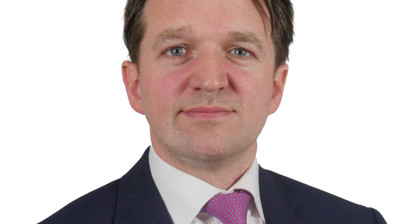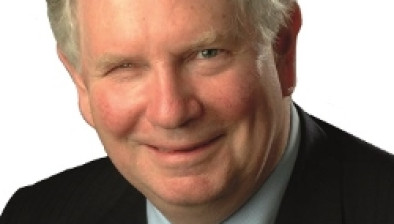Aberdeen Standard Equity Income Trust posts negative annual results
Aberdeen Standard Equity Income Trust’s annual results for the 12 months to 30th of September 2019 has revealed that the Net Asset Value total return for the year was -10.8%, share price total return was -15.1% against the FTSE All-Share Index total return of 2.7%.

Thomas Moore, manager of Aberdeen Standard Equity Income Trust
However, the results have also highlighted a total dividend for the year of 20.5p (2018: 19.2p) - 6.8% increase versus a rise in the Retail Prices Index of 2.4%.
This is the 19th successive year in the annual dividend and the Board anticipates being able to increase the dividend for the 20th time in the coming financial year.
Over ten years the Net Asset Value total return is 120.1%, the share price total return 128.7% versus the FTSE All-Share total return of 121.0%.
Richard Burns, chairman of Aberdeen Standard Equity Income Trust, said: “My forecast a year ago, that long-term interest rates in Britain had probably bottomed out and were likely to rise, has proven wide of the mark with yields having declined still further.
“More accurate, however, was my prediction that striking a Brexit deal which could obtain Parliamentary approval was far from certain.
“Worldwide economic activity is still growing but it has decelerated considerably during the last twelve months and business sentiment surveys are becoming increasingly gloomy. In Britain, we face a general election whose outcome seems likely to be in doubt right up until the moment the votes are counted.
“When shareholders meet board and manager at the AGM on 23 January 2020, the political uncertainty should be somewhat reduced and Brexit might only be days away from happening. Whether that will be good or bad for British financial markets remains to be seen.
“In the meantime, our manager will be working hard to ensure that the severe disappointment of 2019 is left in the past and that the more positive trend of the last two months is being built on. I hope, therefore, to be able to report on a more rewarding year in twelve months’ time.”
Thomas Moore, manager of Aberdeen Standard Equity Income Trust, added: “The portfolio’s disappointing performance in the financial year has not shaken our conviction in the merits of our investment process. We continue to believe that the best way to deliver for shareholders in the long term is to identify stocks whose potential for improvement is not priced into their valuations.
“The prolonged period of intense investor pessimism we have experienced has led to a polarised stock market in which stocks perceived as low risk are trading at very high valuations while stocks regarded as higher risk are trading at very low valuations.
“This valuation divergence is the most extreme it has been for more than 10 years and we therefore see it as an opportunity to build positions in robust businesses that will ultimately deliver strong performance as risk aversion subsides.
He continued: “Past performance is, of course, no guide to the future, but when we have observed a similar situation in the past, we have recovered strongly once investors become less anxious and shift their focus away from momentum investing and back to corporate fundamentals.
“Increased confidence levels would benefit many of our holdings, in particular those stocks whose earnings and valuation multiples are linked to global economic growth, such as resources, industrials and financials. Specifically, the political uncertainty relating to Brexit and the US-China trade war has weakened activity levels and depressed valuation multiples across many of our holdings.
“We would expect share prices to respond very positively to any resolution to these political matters. In addition, we remain confident in the sustainability of the portfolio’s income generation and expect the portfolio to deliver solid revenue growth in 2020. We have seen some evidence of a change in mindset since the beginning of September at which point conditions have become noticeably more benign for our investment process.
“Although uncertainty is still elevated, investors are showing signs of becoming less nervous, particularly in relation to the risk of a no-deal Brexit. We have also benefited from a noticeable increase in the number of holdings meeting or beating consensus analyst expectations and a reduction in the number of stocks missing expectations.”
Mr Moore added: “Our focus in the year ahead remains to ensure that the portfolio generates solid cash flows and dividends, which we expect will deliver improved share price performance.
“The portfolio starts the new fiscal year from a position of low valuations, with the median stock in the portfolio yielding around 5% and trading at a valuation of around 11x earnings (a discount of more than 20% to the median rating of all the companies in the FTSE 350 ex Investment Trusts Index), suggesting there is considerable scope for valuations to re-rate.
“We remain positive on the dividend prospects of the companies within the portfolio given robust fundamentals and our forecasts for the year ahead indicate healthy growth in the revenue account. While investor sentiment may remain choppy, the foundations of solid corporate fundamentals and low valuations are in place for a recovery in your Company’s performance.”







